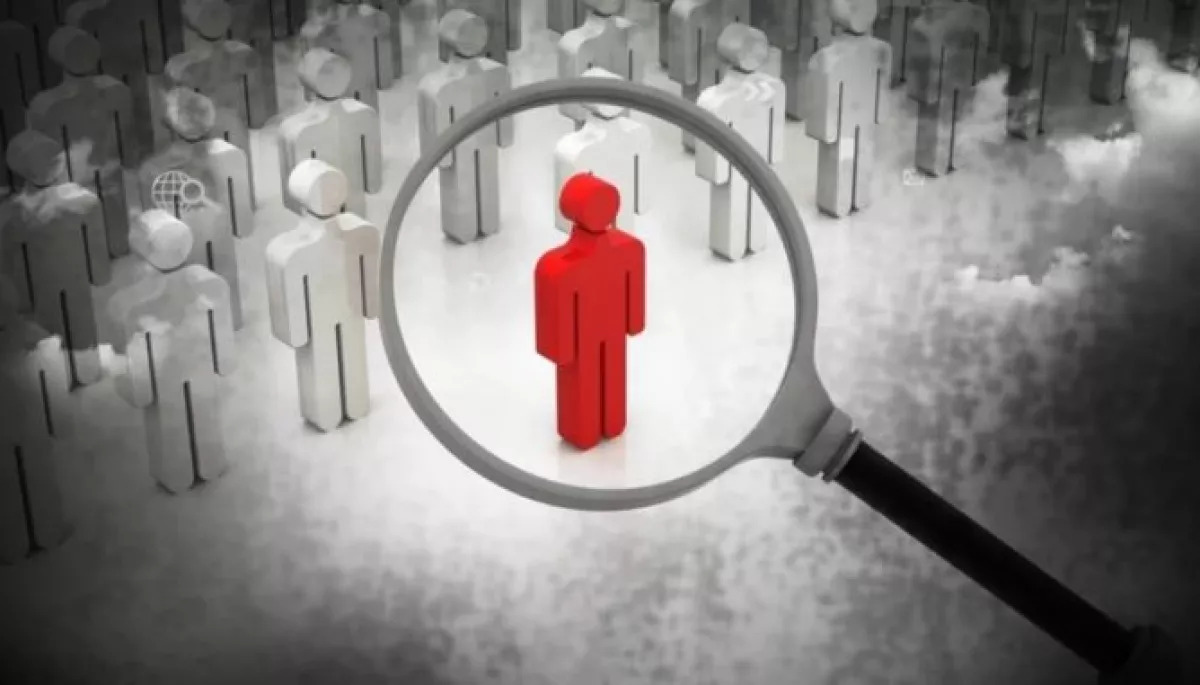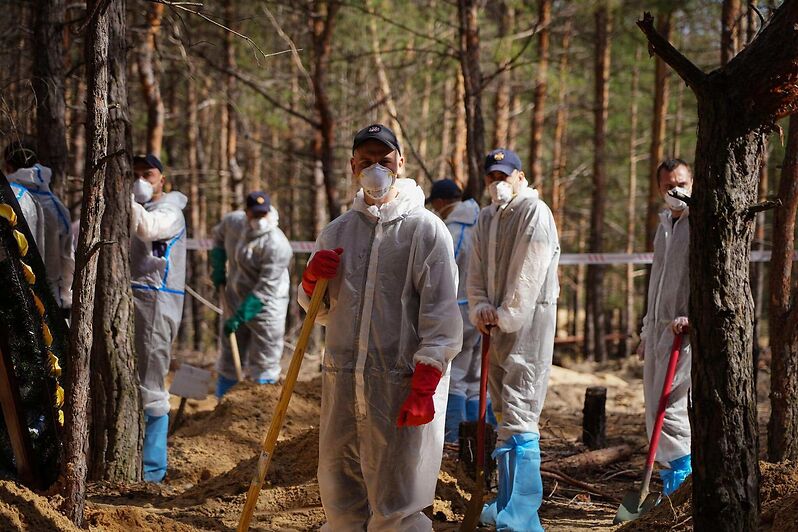
As of 18 October 2023, about 28 thousand Ukrainian citizens have disappeared under distinctive circumstances.
Such figures were announced by Deputy Minister of Internal Affairs of Ukraine Leonid Tymchenko during a meeting with representatives of the International Commission on Missing Persons (ICPM). He also explained that, at present, “it is necessary to collect DNA samples to compare this information with the requests that expert institutions receive from the families of the missing.” At the same time, the official explained that a problem arises with identifying bodies that are temporarily buried or remain in temporarily occupied territories or a combat zone. “Search teams cannot come in and pick up the bodies and exchange the ones we have. Unfortunately, there cannot be full-fledged exchange cooperation with an aggressor and a terrorist,” — Tymchenko noted.
Timchenko stated that the Office of the Ministry for Issues of Missing Persons under Special Circumstances was created, which performs the functions of the Secretariat of the Commissioner for such disappearances. The Deputy Minister also recalled that a Unified Register of Missing Persons operates in Ukraine.
The Kharkiv Human Rights Protection Group (KHPG) article provides more details about the Register. Let us remind you that relatives of missing persons do not have to pay to obtain an extract from the Unified Register. The article explains this in more detail.
An analytical study by the Kharkiv Human Rights Protection Group confirmed that “the Russian side does not fulfill its international obligations.” “After the disappearance, the relatives of the victims had no opportunity to obtain information either from the local occupation authorities or from government officials of the Russian Federation,” — noted KHPG lawyer Hanna Ovdiienko. The Russian Federation could confirm that the missing person was under the control of Russian authorities after months had passed since the disappearance. Sometimes, the information was confirmed a year later. However, even such confirmations may not contain information about the exact location of the person and/or the state of his health. Given this, the relatives of the missing remained in a vacuum. First, they did not know whether the disappeared person was alive, and then they did not know what condition they were in and whether they were being subjected to violence. “In response to requests, Russian government authorities did not give specific answers, and in most cases, did not answer at all,” — noted Hanna Ovdiienko. The lawyer also stated, “Such actions are committed intentionally since formal responses from the Russian Federation, which do not contain specific circumstances of the crimes, are provided by the same persons, en masse, in all cases known to us.” Moreover, such answers do not comply with international and national law norms, — Ovdiienko emphasized.
Also, during the meeting, the replenishment of the DNA database was discussed. Representatives of the ICPB once again reminded us of what international experience shows. A database of 90 thousand DNA samples should be formed for 30 thousand missing people. Thus, at least three relatives of the missing person must provide genetic samples. As the ICPB previously noted, the international commission is ready to help Ukraine properly investigate each such case, and it has enough resources. For example, a high-precision DNA laboratory makes it possible to establish the identity of a deceased person under the most challenging conditions, even when it comes to degraded bone samples.
In addition, at the meeting, they mentioned a pilot project for collecting DNA samples from Ukrainians abroad, which the Ministry of Internal Affairs, together with the ICPB, began in February 2023. Back in August 2022, ICPB General Director Katherine Bomberger said that the International Commission could collect the necessary samples both in Ukraine itself and in countries that sheltered temporary refugees who left Ukraine due to Russian aggression. Currently, DNA samples can be taken from Ukrainians in Poland and the Netherlands; in the future, they plan to create the same option for Ukrainians in Germany.
Memorandum of Cooperation
On 18 October, the International Commission on Missing Persons signed memoranda of cooperation with the Ministry of Justice and the Ministry of Health.

The cooperation of the ICPB with the Ministry of Justice will allow us to develop cooperation in the field of forensic genetics and forensic examination, strengthen capacity in DNA identification, and use modern forensic technologies for effective investigation and the search for missing persons. In turn, the Memorandum of Understanding signed with the Ministry of Health of Ukraine will strengthen cooperation in the field of forensic medicine and forensic examination. In particular, this will allow the development of standards for forensic examination procedures based on international standards. As the press service of the ICPB noted, “cooperation in the field of forensic medicine and the development of the industry will contribute to the timely processing of a large number of cases and ensuring decent treatment of the bodies.”
As Katherine Bomberger noted, “no country in a war has the ability to independently and adequately solve the enormous problem of finding missing people and investigating their disappearances so that evidence of these crimes is available to the International Tribunal.” ICPC support will provide more significant opportunities to meet these requirements. In turn, Matthew Holiday, Director of European Programs of the International Commission on Missing Persons and head of the ICPB program in Ukraine, noted that ICPB seeks to expand the technical capabilities of Ukraine so that it can investigate tens of thousands of cases properly.
Broad context
As Matthew Holiday noted, even after the cessation of active hostilities, Ukraine will continue to investigate cases of disappearances for years.
In September 2023, the Kharkiv Human Rights Protection Group wrote that by that time, law enforcement officers had been unable to identify 57 bodies found in a mass grave in the vicinity of Izium. At the same time, the speaker of the Kharkiv regional prosecutor’s office, Dmytro Chubenko, reported that more than 20 bodies had injuries, in particular fractures of various parts of the body, and 15 bodies showed signs of torture. “When examining the exhumed bodies, experts found gunshot wounds in 15 victims, blast injuries in 87, signs of torture in at least 15 (in particular, they were found with their hands tied, ropes around their necks), 23 had fractures of the jaws, bones, hands, ribs,” — said a representative of the Kharkiv regional prosecutor’s office.

From the beginning of the full-scale invasion until May 23 of this year, the Office of the UN High Commissioner for Human Rights documented 864 cases of arbitrary detention of civilians committed by representatives of the Russian Federation. 763 of the detainees were men, 94 were women, and seven were boys — the UN reported and noted that many documented cases of arbitrary detention could also be classified as forced disappearances. The director of the Kharkiv Human Rights Protection Group, Evhen Zakharov, also pointed out that the lion’s share of the 4,200 missing people disappearances documented by the joint initiative “Tribunal for Putin” (T4P) can be tentatively classified as forced disappearances because all attempts by relatives to find the missing are met with either a refusal to respond or a statement that the whereabouts of the missing person are unknown. “The International Red Cross, at best, can answer that the person is in Russia but does not specify where exactly,” — explained the director of the KHPG. At the same time, both illegal detention without a court decision and forced disappearances with concealment of a person’s whereabouts are gross violations of human rights and can be preliminarily qualified as a crime against humanity, noted Evhen Zakharov.



